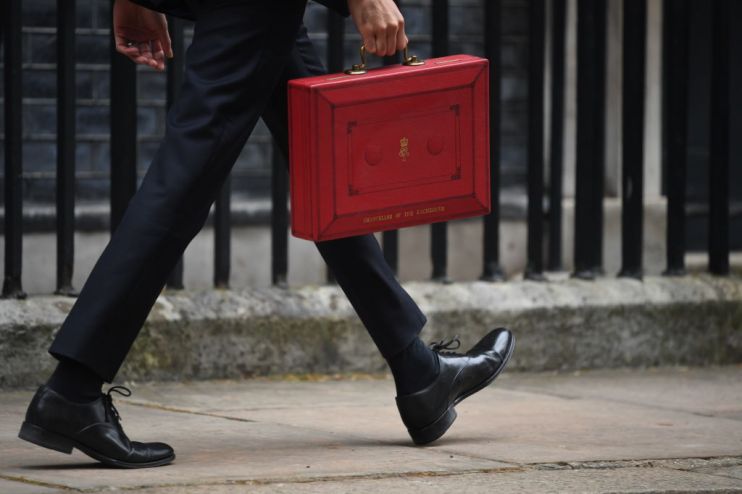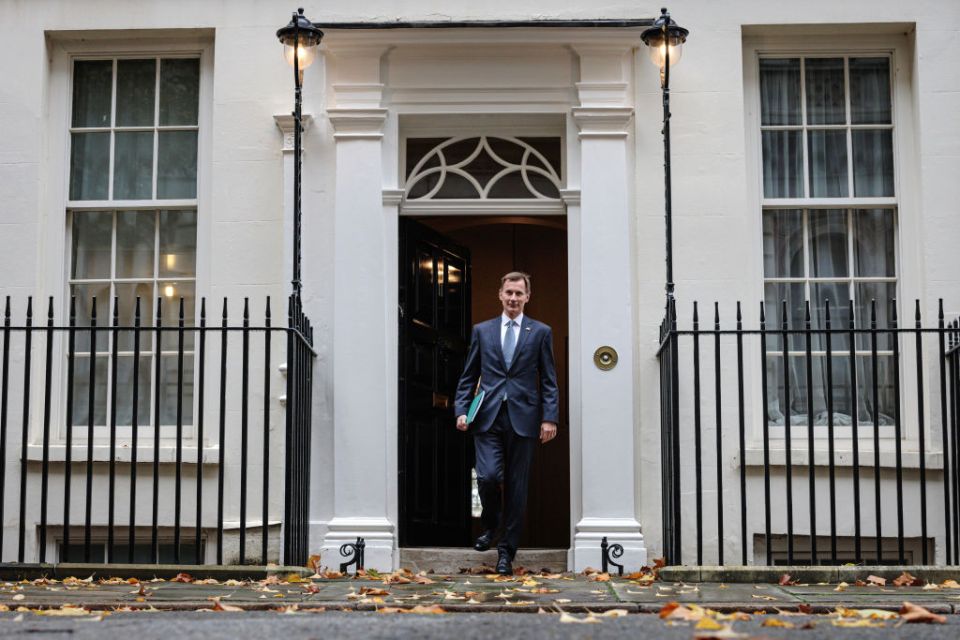Spring budget: Back to work, childcare and post Brexit customs – what do we know so far?

This Wednesday, Chancellor Jeremy Hunt will stand on the steps of No11 Downing Street – holding the famous Budget 2023 red box.
Of his five predecessors, just Rishi Sunak was even in post long enough to reach this point.
Political turmoil aside, his spring statement will also follow months of financial chaos, after economic shocks sparked by Covid; the Ukraine war and energy crisis; and Liz Truss’ calamitous mini-budget.
The Treasury has been eager to emphasise Hunt’s ‘steady as she goes’ attitude, positioning the former health secretary and MP of 20 years standing as Britain’s calm down Chancellor.

He has already spent much time pouring cold water over the economic heat that saw household energy bills, mortgage payments and grocery prices spiral skyward.
But with rightwingers demanding he forsake a planned corporation tax hike to 25 per cent in a bid to go for growth, the UK’s money man is widely expected to dash Tory hopes as well.
Most of the action will have to wait for mid-week, but, amid speculation on tax breaks and defence, various glimpses of the closely-veiled contents of the budget box have emerged.
CityAM has trawled through the details to bring you everything we know so far.
Back to work moves
This has been the main thrust of the pre-budget chatter so far. The UK is in the throes of a productivity crisis, creating a drag on our potential for economic growth.
Hunt is keen to tackle this head on, and the Treasury has briefed Wednesday’s headlines will focus on removing barriers to employment to supercharge Britain’s workforce.
Packages for parents, the disabled, over-50s, low-earners and those with health issues are expected and aimed to encourage benefit claimants to find work and up their hours.
Carbon capture
Hunt wants the UK to lay claim to the carbon capture market, and has laid out plans for £20bn of investment in the sector, which he says will help create up to 50,000 skilled jobs.
Spades will be in the ground on these projects by next year, the Treasury said, as part of efforts to clean up domestic energy supply, secure long term security and hit net zero goals.
Funding will go to schemes aiming to store 20-30m tonnes of CO2 yearly by 2030.
Childcare
High childcare costs have been a key political battleground in the budget run-up, with the Chancellor at the sharp end of consensus on the issue.
The Treasury has already announced a series of funding reforms, including upping the amount parents on Universal Credit (UC) can claim for childcare by several hundred pounds.
Parents will also receive Universal Credit childcare payments upfront, rather than in arrears, as part of a wider bid to cut employment barriers and support Brits back into the workforce.
Customs changes
Hunt will simplify the UK’s post-Brexit customs system, the Treasury says, by giving traders six more days to submit border crossing forms and making it easier to group forms monthly.
The budget will streamline excise authorisations – cutting the number from 42 to five – and help businesses bring wares into the country more efficiently.
Financial guarantee requirements will be liberalised and a consultation on setting new voluntary standards for custom intermediaries will also be held.
Prepayment penalty
Outcry over energy companies forcing their way into homes to install – pricier – prepayment meters made headlines earlier this year as the rise in gas and electricity costs continues.
Hunt will outline reforms to bring down the cost of prepayment, which means families pay for their power in advance of use, via physically topping up, as opposed to monthly direct debits.
Costs will be brought in line with other forms of payment, under the Energy Price Guarantee.
Tax avoidance
Losses of around £400m a year to tax avoidance schemes are but a sliver of the UK’s multi-billion – or even trillion – in annual expenditure.
But it’s hard to argue with headlines on cracking down on tax dodgers. Hunt is therefore set to announce a clamp down, with people who refuse to stop promoting it risking prison time.
Marketed avoidance schemes, which now often target contractors and healthcare agency workers, tempt people into involvement and often land them with high unexpected bills. HMRC says it is “laser focused” on driving such promoters out of business.
Veterans
Finally, Hunt is expected to cough up £33m over the next three years to support veterans.
It will address housing needs, support with serious injuries and follow an £8.5m package to tackle veteran homelessness announced last year.
Follow all the live announcements from Wednesday’s budget and read expert reaction via CityAM.com.
